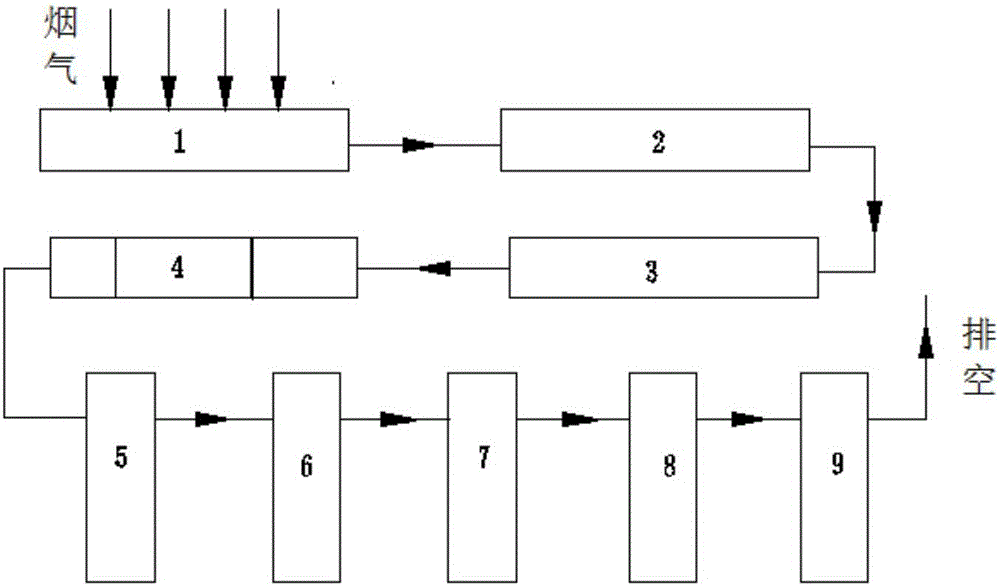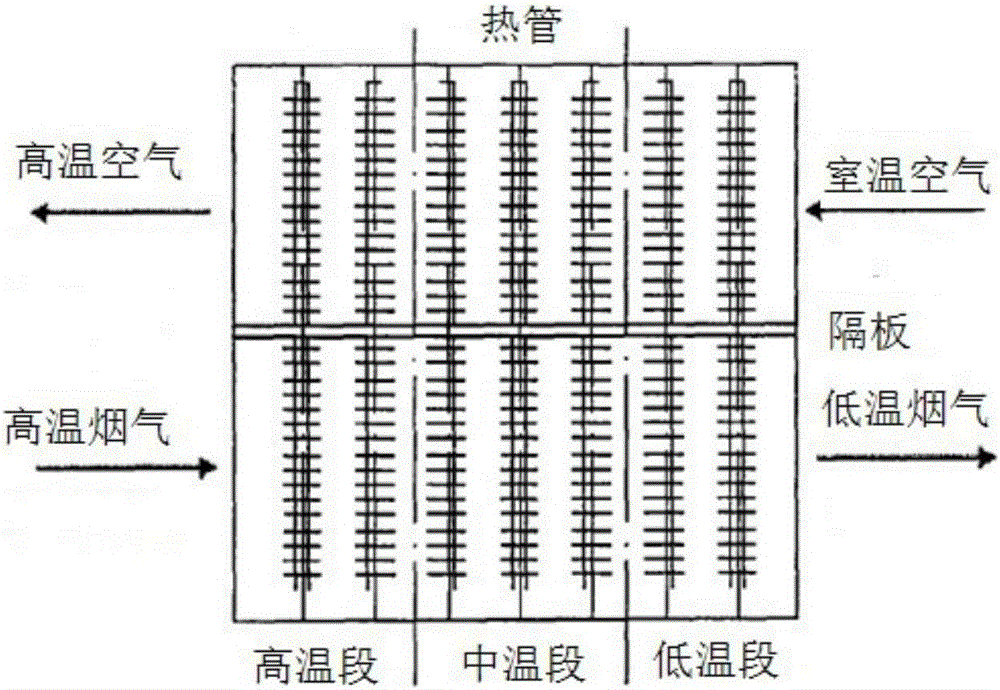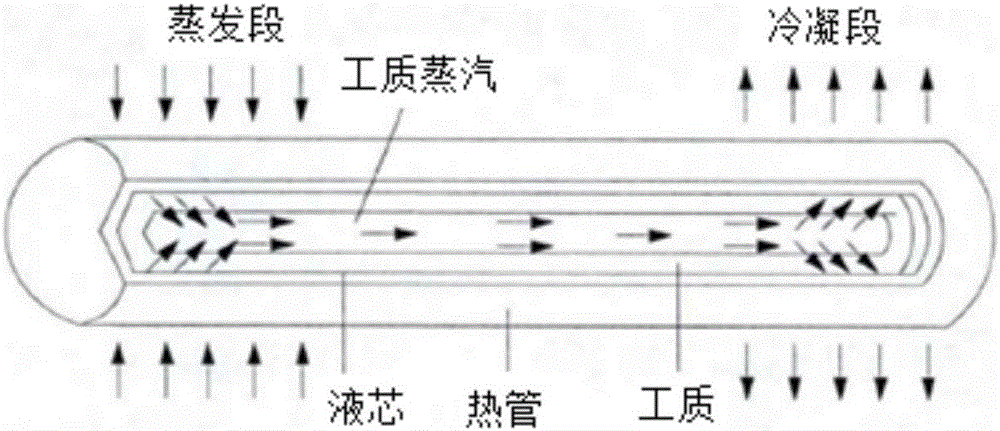Treatment method for dioxins atmospheric pollutants in household refuse incineration smoke
A technology for domestic waste incineration and air pollutants, which is applied in the treatment of combustion products, combustion methods, combustion types, etc., can solve the problems of increasing air pollutants, waste of heat energy, and no use, so as to reduce load and increase high-temperature combustion. time, the effect of reducing the load
- Summary
- Abstract
- Description
- Claims
- Application Information
AI Technical Summary
Problems solved by technology
Method used
Image
Examples
Embodiment 1
[0100] Example 1 A treatment method for dioxin-like air pollutants in flue gas from domestic waste incineration
[0101] The processing device is composed of equipment connected in the following order: primary enhanced combustion furnace 1, secondary enhanced combustion furnace 2, silicon nitride porous ceramic filter 3, countercurrent heat exchange waste heat boiler 4, combined heat pipe heat exchanger 5, filter bag Dust collector 6, acid gas removal system 7, activated carbon adsorption tower 8 and induced draft fan 9;
[0102] Described processing method comprises the steps:
[0103] ①. Flue gas enhanced combustion
[0104] The flue gas from the domestic waste incinerator first enters the primary enhanced combustion furnace 1, and then enters the secondary enhanced combustion furnace 2 for intensified combustion; so that the organic combustibles carried in the flue gas continue to be fully burned; at the same time, in the process of domestic waste incineration The generat...
Embodiment 2
[0125] Example 2 A treatment method for dioxin-like air pollutants in flue gas from domestic waste incineration
[0126] The processing device is composed of equipment connected in the following order: primary enhanced combustion furnace 1, secondary enhanced combustion furnace 2, silicon nitride porous ceramic filter 3, countercurrent heat exchange waste heat boiler 4, combined heat pipe heat exchanger 5, filter bag Dust collector 6, acid gas removal system 7, activated carbon adsorption tower 8 and induced draft fan 9;
[0127] Described processing method comprises the steps:
[0128] ①. Flue gas enhanced combustion
[0129] The flue gas from the circulating fluidized bed domestic waste incinerator first enters the primary intensified combustion furnace 1, and then enters the secondary intensified combustion furnace 2 for intensified combustion; so that the organic combustibles carried in the flue gas continue to be fully burned; at the same time, in the life Dioxin-like c...
Embodiment 3
[0150] Example 3 A treatment method for dioxin-like air pollutants in flue gas from domestic waste incineration
[0151] The processing device is composed of equipment connected in the following order: primary enhanced combustion furnace 1, secondary enhanced combustion furnace 2, silicon nitride porous ceramic filter 3, countercurrent heat exchange waste heat boiler 4, combined heat pipe heat exchanger 5, filter bag Dust collector 6, acid gas removal system 7, activated carbon adsorption tower 8 and induced draft fan 9;
[0152] Described processing method comprises the steps:
[0153] ①. Flue gas enhanced combustion
[0154] The flue gas from the circulating fluidized bed domestic waste incinerator first enters the primary intensified combustion furnace 1, and then enters the secondary intensified combustion furnace 2 for intensified combustion; so that the organic combustibles carried in the flue gas continue to be fully burned; at the same time, in the life Dioxin-like c...
PUM
 Login to View More
Login to View More Abstract
Description
Claims
Application Information
 Login to View More
Login to View More - R&D
- Intellectual Property
- Life Sciences
- Materials
- Tech Scout
- Unparalleled Data Quality
- Higher Quality Content
- 60% Fewer Hallucinations
Browse by: Latest US Patents, China's latest patents, Technical Efficacy Thesaurus, Application Domain, Technology Topic, Popular Technical Reports.
© 2025 PatSnap. All rights reserved.Legal|Privacy policy|Modern Slavery Act Transparency Statement|Sitemap|About US| Contact US: help@patsnap.com



